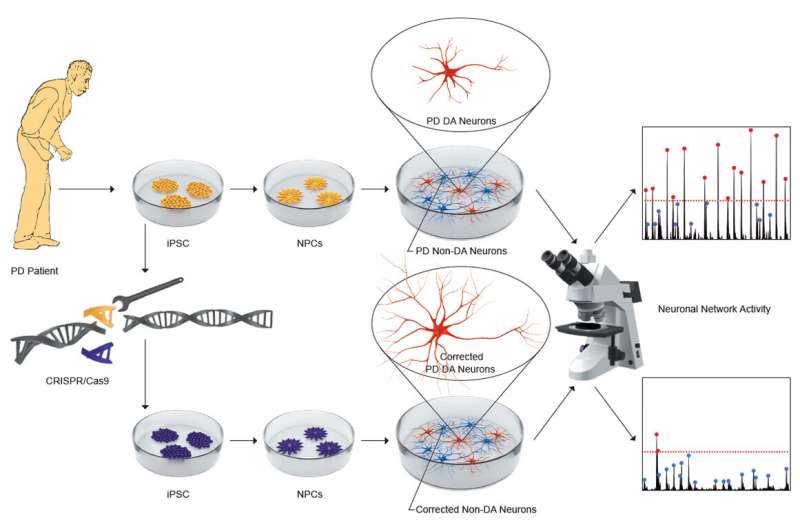
Researchers from IDIBELL and the University of Barcelona (UB) report that neurons derived from Parkinson’s patients show impairments in their transmission before neurodegeneration. The study used dopaminergic neurons differentiated from patient stem cells as a model.
Parkinson’s is a neurodegenerative disease characterized by the death of dopaminergic neurons. This neuronal death leads to a series of motor manifestations characteristic of the disease, such as tremors, rigidity, slowness of movement, or postural instability. In most cases, the cause of the disease is unknown; however, mutations in the LRRK2 gene are responsible for 5% of cases.
Current therapies against Parkinson’s focus on alleviating symptoms, but do not stop its progression. It is thought that early interventions before the appearance of the first symptoms that prevent neuronal death could slow down or even stop the evolution of the disease. However, currently, the diagnosis is based on the appearance of symptoms, when 70% of the neurons have already been lost.
A group of researchers from IDIBELL and the University of Barcelona (UB) has identified early functional deficiencies, before death, in neurons derived from patients with genetic Parkinson’s. Dr.Antonella Consiglio says, “These discoveries open the door to early diagnosis, which would allow us to carry out a premature intervention that would slow down neuronal death, and therefore, would stop the evolution of the disease.”
In this work, dopaminergic neurons, the most vulnerable in Parkinson’s, differentiated from stem cells (iPSC) of healthy individuals and patients with genetic Parkinson’s, have been used as a model. Researchers have observed that these dopaminergic neurons are capable of maturing and forming functional neural networks in culture, in both control and Parkinson’s disease conditions.
Source: Read Full Article
